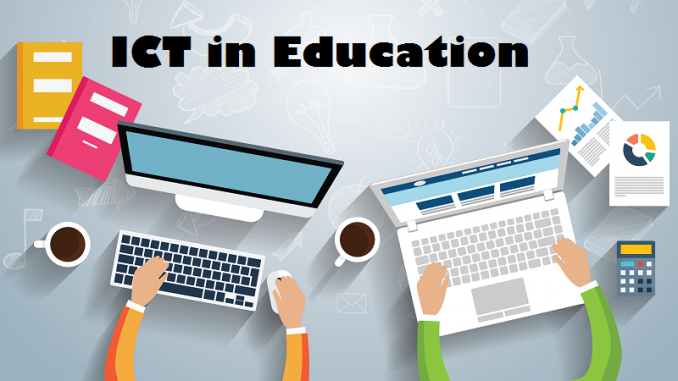For the last five years I have been running this site, Enhanced Education Group, I have noticed a worrying trend. Many teachers (primary and secondary school) do not know how to manoeuvre their way through a typical website. Many have to call to ask how they can download past papers of their liking. A simple action, that anyone has an interest would have learned how to. This has not only become tiresome but also infuriating having to explain basic, very basic stuff to adults.What a waste of opportunities. How many even feel frustrated and end up leaving the website. The internet has become a universal source of all kind information that can make teachers and anyone else thrive in their work. Yet the lack of basic internet/ICT skills has shortchanged many.
How many teachers can buy books and learning materials through eCommerce sites? How many teachers have email addresses? I dare say that lack of basic ICT skills amongst teachers has not only adversely affected their teaching, but also the country’s economy. The country and businesses have lost what would been a valued clientele.
And now with Pandemics such as Covid-19, schools have been locked down and in many cases, learning has stopped. Had schools and universities invested in ICT services for their institutions, learning would have continued seamlessly. Brookhouse School, Nairobi has done well and other schools and even universities should consider emulating this kind of learning and teaching.

Information and Communication Technology (ICT) has the potential to transform teaching and learning processes. Many studies elsewhere have established that students are more sophisticated in their use of technology than teachers; and the inherent discrepancy between student knowledge and usage of ITCs with the abilities of a teacher to use ICT. Thus teacher inexperience and skill deficiencies may often be a fundamental factor which prevents the effectiveness of ICT use in education.
It is widely accepted that the use of ICTs should not aim at completely transforming teacher practices in and of itself but rather enabling and supporting the move from traditional “teacher-centric” teaching styles to more “leaner-centric” methods. Each student should be made fully active and engaged.
It’s not unusual to find teachers and lecturers who dictate their closely guarded notes in class and do all that they can to ensure there is close contact between the students and the teacher. Isn’t this kind of teaching outdated? Shouldn’t teaching be conversational in style? And with the advent of the digital/ICT age, why do we still have teachers who hoard information?
What’s putting teachers off from improving their digital skills? Age and lack of daily experience? Or is it lack of confidence or fear of using ICT for learning. Is it that they worry that their knowledge level doesn’t match those of their digital students?
Benefits of teacher training
Teachers need to take part in continuous development training. They should understand the benefits of digital literacy. Other professionals, such as engineers, architects, lawyers, accountants, are required by their respective authorities to participate Continuing Professional Development (CPDs) activities, and their licenses are based on meeting the minimum CPD points. What of teachers?
Training in ICT needs to be recognized as essential for teaching such skills, and as an enabler of other teaching and learning practices.
Schools and government need to invest in and implement long term ongoing and continuous professional development in order to keep up with rapidly evolving digital technologies.
Necessary Digital Skills for 12st Century Teachers.
The basic skills include:
Word processing and spreadsheet software. Basic understanding of document formats. What is PDF? What is a zipped file? How do you unzip zipped files? Can a teacher create a basic report using the computer?
Internet Skills: What’s a website, and how can you manoeuvre yourself through a website? Can you download documents hosted on a website? Can you buy anything through a website? Are teachers’ competent web users? Do teachers understand ICT security and Identify theft? With the continued rise of the social media platforms, do teachers have the requisite skills to guide their students on such issues?
Classroom education is increasingly moving away from lecturing at students to a more collaborative project-based model and digital technology plays a fundamental role in this.
While we may intend to teach pupils responsible and resilient users of technology, able to make confident and safe use of web and other internet-based services, and able to detect and deal with issues as they rise? As it the same case with teachers?
Whether one is a pupil, a teacher, an employee or simply a citizen, we should all have the right – and the means – to be resilient users of technology.
While we are focusing on implementing a competency-based curriculum (CBC) in our schools, how comes we have forgotten the role and importance of digital literacy? Where shall we get our future internet pioneers? The earlier you introduce a pupil to digital literacy, the higher the chance that they shall be innovative in their future selves. Why are we not introducing programming to kids? The government via the relevant ministries should take it up and enforce this. The same way we have forced kids to learn English and Maths.
Why do we have to wait until we become followers and trailers of other nations? Most other aspects of our lives are been influenced by ICT. Transport, Medicine, Agriculture, etc. Yet teaching remains the same?
Lord David Puttman offers this analogy:
“If you took a brilliant surgeon from 1913 and placed him in an operating theatre today, there is nothing he could do; nothing he could contribute from his skill base. And yet if you take a teacher from 1913, and pop her into a classroom today, in many, many subjects she could teach what all of us would understand as a lesson”.
Teacher training on these issues should a priority of the government and the private sector. All teachers should be trained, and as a requirement, new teachers should provide evidence of ICT literacy before they are employed.
Training in ICT needs to be recognized as essential for teaching such skills and as an enabler of other teaching and learning practices. The same way that reading and writing is.
Perhaps we should start with a national survey exploring the penetration of ICT skills amongst our teachers.


